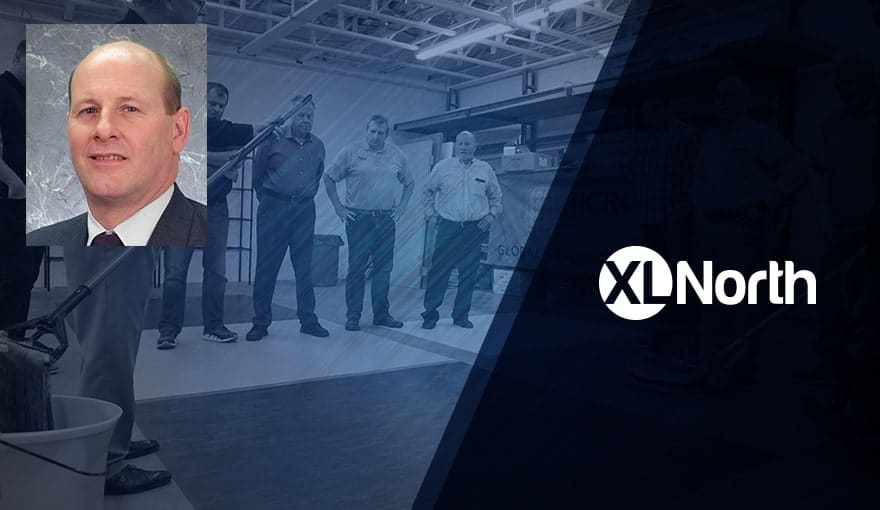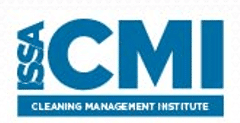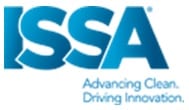Training As a Passion
Mark Warner is currently the education manager for ISSA‘s Cleaning Management Institute. His extensive background in floor care spans over three decades, with two of those spent in training and education. “Being involved with training and sharing information, I learn every day as well as try and teach others every day,” Mark reveals. He adds, “It has been one of the most fulfilling things I’ve ever done in my 30 years in the cleaning industry.” He also currently serves as chair of the IICRC‘s hard surfaces division, where he oversees 10 technical advisory committees for technicians and inspectors. Mark offers a unique perspective from all points of the flooring compass, including hard surface and carpet, and he firmly believes that a knowledge of chemistry is required to make floor care work.
Defining Floor Care Best Practices
ISSA has a global reach and is therefore able to provide beneficial information on international standards of care. While the United States doesn’t require the same level of technical training and certification as other countries with stricter regulations, there’s been a recent push towards requirements and certifications. Knowledge is at the root of this movement. A technician’s knowledge becomes incredibly valuable when dealing with facets of cleaning like infectious disease control or asset care. “Someone might not put much value on their mother’s linoleum kitchen floor,” Mark mentions, “but lobby floors in class A buildings can be worth over $250,000.” Some individual U.S. businesses are requiring certification for promotion within the company. “I know of other organizations that won’t even interview candidates unless they’re able to show levels of certification,” he states.
It’s a big change, Mark points out, from his early days in floor care when the industry flew beneath the radar, and maintenance procedures were simply passed from person to person. As the information traveled, it became more varied.
Mark analogizes, “It’s like telling a story around a campfire. It starts off as a mouse but ends up as a moose.”
A good certification program, according to Mark, teaches three levels of practices. First, a tech should learn the worst practices. These are things that should never been done in floor care. “For example, don’t use bleach to spot carpet,” Mark chuckles. Second, most certification programs teach accepted practices. These are the procedures used to effectively clean and maintain floors. Mark believes that while there’s an abundance of accepted practices, most people are looking for the third level of training, best practices. He explains, “Best practices are the step-by-step processes that allow technicians to be effective in the most efficient way.” In business, time is money and organizations want to know that their employees are doing an effective job as efficiently as possible.
Robotics and the Evolution of Floor Care Technology
“Part of my role is the development of new curriculum that’s targeted for introduction two to three years from now,” Mark explains. He’s currently working on curriculum for training with robotics and notes that two things must change once robots are introduced into the world of floor care. The first is rethinking cleaning systems design. “You can no longer use zone cleaning,” Mark states. “You have to start thinking about specialist cleaning because you now have a specialist that isn’t human performing floor care, and the cleaning system needs to be built around that concept.”
Secondly, Mark believes the continued pursuit of robotics in floor care will lead to a reexamination of the value of high quality maintenance products, and he’s thrilled about it. “For so many years, it has been a battle of who can make the cheapest product and most people don’t realize the inferiority was being made up for by knowledgeable floor techs who knew how to make it work with a little extra effort,” he explains. The chemistry needed when using robots has to be of superior quality and perform at an extremely high level. “You no longer have a human eye involved in trying to correct blemishes and flaws that might occur from inferior product,” Mark points out. Again, most technicians have learned over their careers how to make an inferior product look okay, but a robot lacks that ability. In Mark’s opinion, the need for exceptional quality floor care products when using robots is critical. It’s paramount that proper chemistry is used for each season and soil type, and that floor coatings are performing at the highest level.
He concludes, “High quality products are where you get the best bang for your buck.”
Setting a Solid Career Foundation
Although there are various avenues of career training through several associations, Mark recommends getting certified as a custodial technician to start. This training is at a core competency level and includes important information like understanding the pH scale, using detergents and solvents, releasing soils, using a mop, framing an area, operating machinery, and learning proper glass cleaning strokes. This basic knowledge provides a proper foundation for a technician to seek out additional certifications and move up in the maintenance arena, target a specific industry, or build their own cleaning business.
Mark notes that an investment in training is just as important to employers as it is to employees. He believes that successful maintenance companies differentiate themselves with quality techs that are more than just people that clean floors. It’s the experience, knowledge, and dedication of technicians that separates growing businesses from those struggling to survive.
Learn More About ISSA Today!
The leading trade association for the cleaning industry worldwide, ISSA has a membership that includes more than 7,000 distributor, manufacturer, manufacturer representative, building service contractor, in-house service provider, and associated service members. ISSA helps its members and their employees make valuable contacts through the industry’s largest cleaning shows. The association is headquartered in Northbrook, IL, USA, with regional offices in Petersham, Australia; Mainz, Germany; and Shanghai, China. Learn more today!
Available for Download
This interview is available as a free downloadable PDF. Get the document here.




